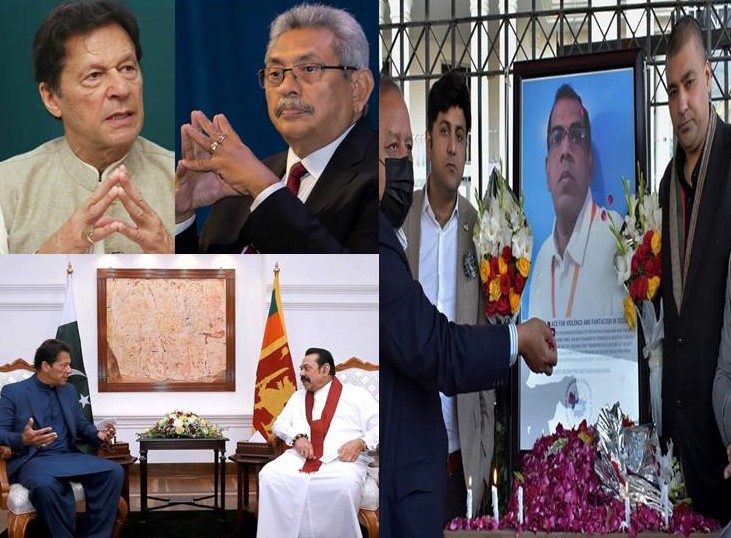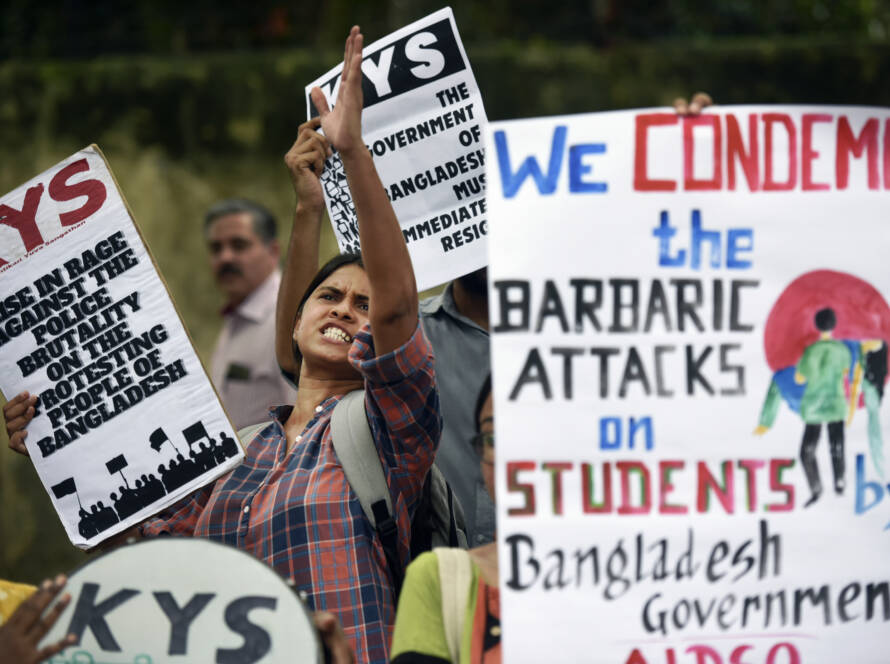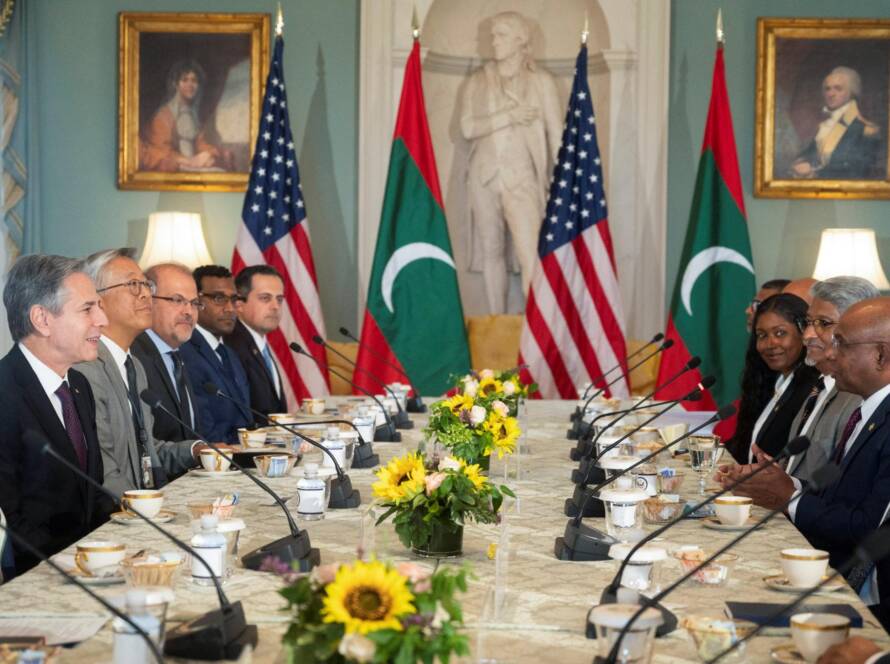By Arjuna Ranawana

A Sri Lankan General Manager of a leading garment manufacturer in the city of Sialkot in Pakistan’s industrial heartland has been lynched and his remains burned. Prime Minister Imran Khan termed the incident a ‘’shame’’ to his nation.
Priyantha Kumara, the victim, was in his forties and had been in Pakistan for nearly a decade running a top garment industrial firm which recently produced the kits for the Pakistan Cricket team. According to reports from News Agencies, he is alleged to have torn down a poster with a Koranic Verse and had been tortured and killed by extremists and his remains set on fire.
Some social media activists on Reddit have opined that the so-called poster incident never happened and that Kumara was targeted for another issue that investigators are yet to reveal. That claim is yet to be confirmed.
Gruesome images of the mob assaulting the hapless manager and being set on fire have circulated online.
Over hundred people have been arrested. One young man whom the police say was the instigator of the attack and was the main torturer is also behind bars.
Friday’s killing came only weeks after days of violent protests by the radical Tehrik-e-Labaik Pakistan movement, a Sunni Muslim group founded in 2015 to address actions it considers blasphemous to Islam. The group had been staging a protest demanding the recall of the French Ambassador to Pakistan over France’s dealing with its media’s perceived blasphemous behaviour over Islamic icons.
Prime Minister Imran Khan’s government reportedly released over a hundred of Tehrik-e-Labaik activists from jail in a bid to have the protest called off. The negotiations over the release are reportedly secret, with Imran Khan being blamed for the deal. The Sialkot lynching is believed to have been led by activists of this very group.
Condemnation of the act have come from the highest echelons of the government of Pakistan, including the Chief of Army Staff (COAS), leaders of Islamic groups and of course the office of the President and the Prime Minister.
“Such extra judicial vigilantism cannot be condoned at any cost,” the military’s press wing said, adding that the chief of army staff had ordered full support to the civil administration to bring those responsible to justice.
Civil society activists in the Punjabi capital Lahore held a demonstration condemning the murder of Kumara. In the Sri Lankan Parliament government and opposition leaders called for expeditious action from the Pakistani authorities. Sri Lankan President Gotabaya Rajapaksa tweeted: “Deeply concerned by the incident in Sialkot #Pakistan. #SriLanka trusts that PM @ImranKhanPTI and the Gvt. of Pakistan will ensure justice is served and ensure the safety of the remaining Sri Lankan workers in Pakistan.” Later the Pakistani Premier spoke with the Sri Lankan President who was in the UAE and gave assurances that justice will be served.
This incident highlights the issues that Pakistan is facing in its struggle with extremists and fundamentalists. At least a hundred people have been lynched or murdered in Pakistan over the past few years over similar allegations. They have been Pakistani Muslims, those of other streams of Islam or minorities.
Years of instability, competing ideologies and rampant violence has made Pakistan what it is now. There are many factions, some home-grown and other built on foreign influences that are competing for a piece of the pie in Pakistan.
This struggle, fueled by funds from extremist organisations with deep pockets abroad has been going on for decades. It has caused much friction among the religious and political groups in Pakistan and has a been a constant issue for its people.
But it is in a better state now that it was decades ago when Taliban inspired groups fought against Pakistan. Nearly 40,000 Pakistanis died in the fighting which included Security Forces, Police and ordinary citizens.
Yet, incidents such as the killing of Priyantha continue, and is a matter of concern for all.
As someone who lived and worked in Pakistan for a considerable length of time and visited the country many times after my term ended, I can only call for understanding.
In general Sri Lankans are held in high regard in Pakistan. Many elite schools are headed by Sri Lankan educators, quite a few are from the Catholic Church. The relationship between the Sri Lankan security forces and the Pakistanis is very close, and it has time and time again proved to be a friend in need.
Many terrible mistakes have been made by political leaders in Pakistan and its cynical quasi-religious think tanks. The ordinary Pakistani whose education level and exposure to the outside world is severely limited cannot be blamed for the manipulation that they are subjected to, leading to incidents such as the lynching of Kumara.
Similar mobs have attacked innocent Pakistanis before. A young woman who wanted to marry the man she loved was murdered in the office of her lawyer in the presence of her mother. Two young minority men accused of blasphemy and were released by the Supreme Court of Pakistan were murdered as they walked down the steps of the court.
Kumara was not killed because he was a Sri Lankan or a Sinhala Buddhist. He died as any other person living in that country would have, if there was a hysterically murderous crowd bent on harming someone at that time for whatever reason.
Surely, we Sri Lankans know what that is like.
We Sri Lankans who lived through the 1983 pogroms against the Tamils in the Greater Colombo area must remember how our neighbours and relatives were set upon and murdered, because overnight, they were perceived to be our enemies.
We saw how mobs incited by local politicians attacked their Muslim neighbors in Digana, just a few years ago. A young Muslim man was burnt alive when petrol bombs were thrown into his house, and he could not escape. No-one was prosecuted for that crime. His family said the killers have been forgiven.
We have been manipulated to hate our neighbours by political leader’s time and time again. At one time they are the Tamils, another time they are the Muslims. Every time we the majority Sinhalese have fallen for those lies and attacked our neighbours, friends and sometimes even family members egged on by interested parties wanting to create mayhem.
What we must watch out for now is not to allow this death to distract from the issues ordinary Sri Lankans are facing in their daily lives. It is all too easy for interested parties to use this tragic incident to create chaos in the country. We must be vigilant, and not let our emotions get the better of us. As we know, there are extremists everywhere, waiting in the shadows to use an incident such as this against anyone, they perceive as a threat.
What happened in Pakistan is inexcusable and a terrible tragedy. No-one can condone such a dastardly act. It is indeed a sad commentary on what is going on in a friendly country. We must work with Pakistan to set things rights, as most Pakistanis would desire.
Most of all, it is time to educate everyone that no religion or way of life is perfect, that a faith or belief is better, and that respect and tolerance is the key to prevent further tragedies.
(The writer is a senior editor with experience in print and broadcast media in Sri Lanka, Pakistan and Canada. He can be reached arjuna.ranawana@outlook.com)
***************
Disclaimer – Factum is a Sri Lanka based think-tank providing international relations analysis and public diplomacy consultancies in Sri Lanka and Asia. Visit – www.Factum.LK


